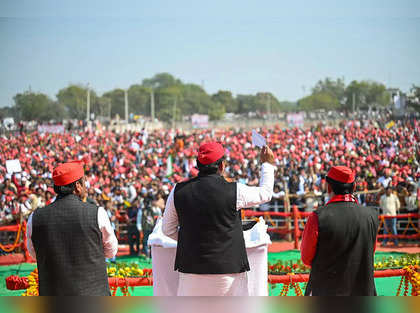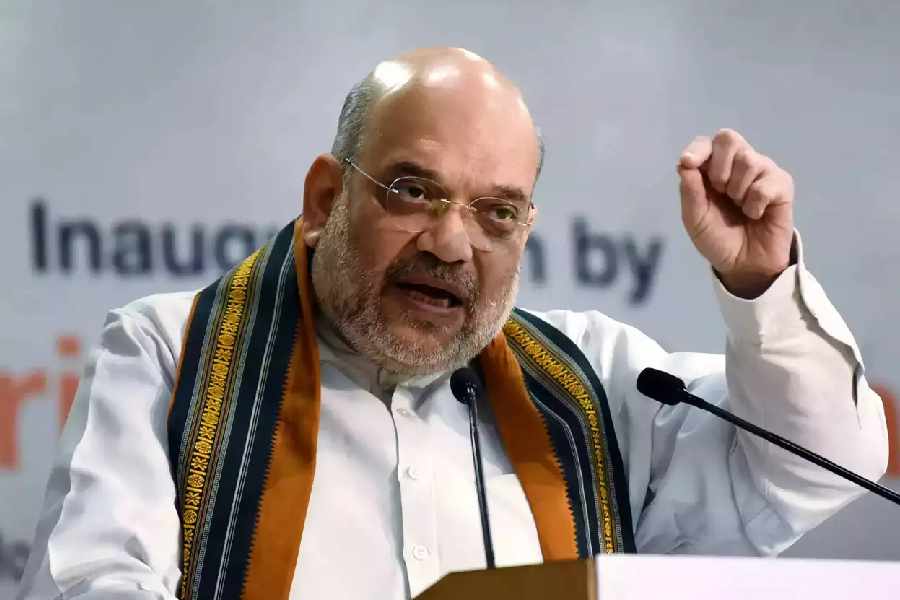Senegal: In the lead-up to the inauguration of the new Parliament building, a heated war of words has erupted between the ruling Bharatiya Janata Party (BJP) and the opposition parties over the government’s plan to use the ‘Senegal’ sceptre, a historic Tamil artifact symbolising the transfer of power between rulers. The opposition, including the Samajwadi Party and the Congress, has questioned the BJP’s interpretation of the ‘Senegal’ and accused the ruling party of accepting defeat in the upcoming general elections. This controversy has resulted in the boycott of the inauguration ceremony by several opposition parties.
Akhilesh Yadav, the leader of the Samajwadi Party and former chief minister of Uttar Pradesh, suggested that the use of the ‘Senegal’ indicated the BJP’s acceptance of their impending loss in the upcoming general elections. Taking to Twitter, Yadav stated, “(The) ‘Senegal’ is a symbol of transfer of power (from one hand to another)… BJP seems to have accepted that the time has come to hand over power.” Similarly, the Congress leader criticised the ruling party for embracing false narratives and using the ‘Senegal’ to consecrate the new Parliament building.
The decision to use the ‘Senegal’ and the selection of Prime Minister Narendra Modi as the inaugural figure instead of President Droupadi Murmu have drawn severe criticism from the opposition parties. As a result, nearly two dozen parties, including the Congress, Trinamool Congress, Dravida Munnetra Kazhagam, Janata Dal (United), and the Aam Aadmi Party, have announced their boycott of the ceremony. The opposition accuses the BJP of politicising a ceremonial artifact and disregarding the significance of President Murmu.
Responding to the opposition’s accusations, the BJP, represented by Union Home Minister Amit Shah and party leader JP Nadda, accused the Congress of despising Indian traditions and culture. Shah defended the decision by highlighting that the ‘Senegal’ was given to Pandit Nehru by a Saivite Mutt from Tamil Nadu to symbolize India’s freedom. However, the artifact was later confined to a museum as a mere “walking stick.” This retort intensified the verbal clash between the two camps.
‘Senegal‘ Controversy Triggers Political Feud Ahead of Parliament Inauguration
The boycott call by the opposition parties triggered a series of counterattacks from BJP leaders, including Union Ministers Nirmala Sitharaman, S Jaishankar, and Rajnath Singh. Rajnath Singh clarified that the event was a constitutional session of Parliament and not a social gathering, emphasising the importance of distinguishing between the two. The opposition, on the other hand, condemned the BJP for sidelining President Murmu, considering it a grave insult and a direct assault on democracy.
Amidst the escalating tensions, a petition was filed in the Supreme Court urging the government to invite President Murmu to the ceremony. However, the court dismissed the petition, stating that the central government’s failure to invite the President did not constitute disrespect to the office.
While several opposition parties have announced their boycott, a handful of parties, including the Biju Janata Dal, YSR Congress, and the Akali Dal, have confirmed their attendance at the inauguration. Surprisingly, Mayawati’s Bahujan Samaj Party, a rival of the Samajwadi Party from Uttar Pradesh, will also attend, although Mayawati herself will not be present.
The controversy surrounding the ‘Senegal’ and the exclusion of President Murmu from the inauguration ceremony has deepened the divide between the ruling BJP and the opposition parties. As the political feud intensifies, the nation eagerly awaits the inauguration of the new Parliament building, which holds both symbolic and constitutional significance for the future of Indian democracy.
India finds itself on the brink of an eagerly anticipated event—the inauguration of the new Parliament building. This grand occasion was expected to bring together leaders from across the political spectrum, symbolising unity and the strength of democratic values. However, the controversy surrounding the ‘Senegal’ sceptre and the decision to exclude President Droupadi Murmu from the ceremony have deepened the existing divisions between the ruling BJP and the opposition parties.
The ‘Senegal’ sceptre, an ancient artifact with historical significance in Tamil culture, has become the focal point of the dispute. While the ruling BJP argues that the ‘Senegal’ represents the transfer of power, the opposition parties, led by Akhilesh Yadav of the Samajwadi Party and the Congress, question this interpretation. Yadav boldly insinuated that the BJP’s decision to employ the ‘Senegal’ hinted at their acceptance of defeat in the upcoming general elections, a statement that reverberated across political circles.
The Congress, known for its strong communication machinery, swiftly criticised the ruling party’s claims and accused them of constructing false narratives to legitimize their actions. Jairam Ramesh, the Congress communications chief, directly confronted the BJP, dismissing any documented evidence that linked the ‘Senegal’ to the transfer of power from British rule to India. Ramesh called out these claims as baseless fabrications that were being propagated through social media platforms.
Political Rivalries Intensify as ‘Senegal’ Controversy Casts Shadow on Parliament Inauguration
In response to the opposition’s relentless attack, senior BJP leaders, including Union Home Minister Amit Shah and party president JP Nadda, launched a counteroffensive. They accused the Congress of displaying a disdain for Indian traditions and culture, highlighting the fact that the ‘Sengol’ had been presented to Pandit Nehru as a sacred symbol of India’s freedom. However, they lamented that subsequent governments had relegated it to the status of a mere museum relic, a walking stick stripped of its true significance.
The opposition parties, alarmed by the BJP’s appropriation of the ‘Senegal’ and the exclusion of President Murmu from the ceremony, united in their decision to boycott the inauguration. This widespread boycott included prominent parties such as the Trinamool Congress led by Mamata Banerjee, the Dravida Munnetra Kazhagam ruling Tamil Nadu, Nitish Kumar’s Janata Dal (United) in Bihar, and Arvind Kejriwal’s Aam Aadmi Party in Delhi. The opposition accused the BJP of disregarding democratic principles by sidelining President Murmu and turning the event into a platform for their political agenda.
